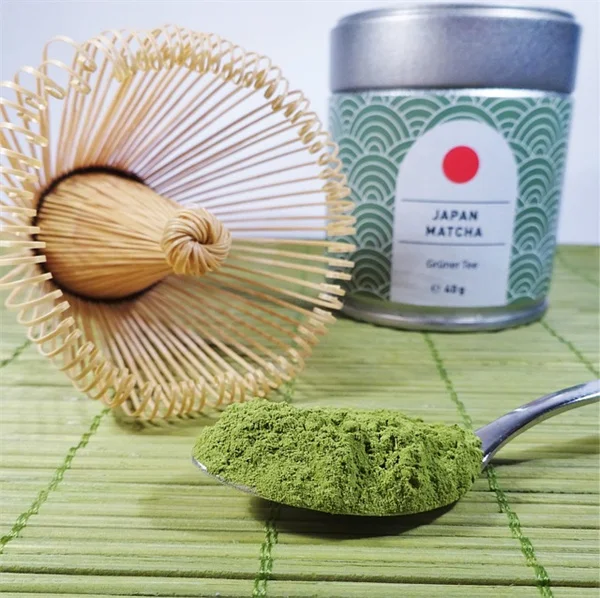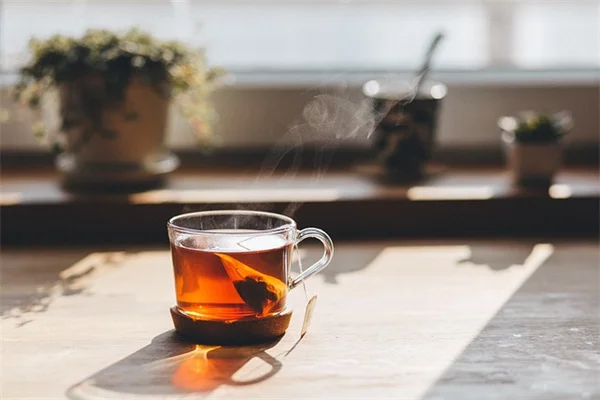Advertisement
Does sleep affect vaccine effectiveness? The answer is absolutely yes! Researchers have proven that getting less than 6 hours of sleep can cut your antibody response to vaccines in half, especially if you're a man. I was shocked to learn this too - turns out those restless nights don't just make you groggy, they actually weaken your body's ability to fight infections.Here's what scientists found: When you skimp on sleep around vaccination time, your immune system basically works with one hand tied behind its back. Deep sleep is when your body produces the antibodies that make vaccines effective. We're talking about everything from your annual flu shot to COVID boosters being less protective if you're not sleeping enough.The good news? You can fix this pretty easily. Just prioritizing 7-8 hours of quality sleep for a few nights before and after your shot makes a huge difference. Think of it as giving your immune system the tools it needs to build maximum protection. I'll walk you through exactly how sleep boosts vaccines and share simple tips that actually work.
E.g. :Salt Substitutes: 3 Heart-Healthy Ways to Cut Sodium Now
- 1、Why Sleep Matters for Your Vaccine Response
- 2、Men vs. Women: The Sleep Gap
- 3、Sleep Hacks That Actually Work
- 4、Timing Your Sleep Around Vaccinations
- 5、Beyond Vaccines: The Bigger Sleep Picture
- 6、The Future of Sleep and Immunity Research
- 7、The Hidden Costs of Sleep Deprivation
- 8、Sleep Myths Debunked
- 9、Sleep Tracking: Help or Hype?
- 10、Sleep and Productivity: The Surprising Truth
- 11、Sleep and Aging: What Nobody Tells You
- 12、Sleep and Relationships: The Silent Killer
- 13、FAQs
Why Sleep Matters for Your Vaccine Response
The Surprising Link Between Sleep and Immunity
Ever wonder why you feel like garbage after pulling an all-nighter? Your body literally fights infections worse when you're sleep deprived. Researchers found that people who consistently sleep less than 6 hours produce fewer antibodies after vaccinations compared to those getting 7-8 hours.
Here's the kicker - this effect is especially strong in men. The study analyzed data from flu shots to COVID vaccines, showing sleep-deprived guys had significantly weaker immune responses. Women showed less dramatic differences, but scientists think hormone variations might explain this gap.
How Sleep Supercharges Your Vaccines
During deep sleep, your body goes into repair mode. This is when critical immune cells work overtime to create antibodies that recognize and attack viruses. Think of it like your body's nightly software update - skip the update, and your defenses glitch.
Dr. Van Cauter, who led the research, puts it bluntly: "If you're getting vaccinated this week, treat sleep like your part-time job." Her team found the sweet spot is 7-8 hours for optimal vaccine response.
Men vs. Women: The Sleep Gap
 Photos provided by pixabay
Photos provided by pixabay
Why Men Suffer More From Sleep Loss
The data shows something fascinating - poor sleep hurts men's vaccine response way more than women's. But why? Researchers suspect testosterone plays a role, but the full picture isn't clear yet.
Check out how sleep duration affects antibody levels differently:
| Sleep Duration | Men's Antibody Response | Women's Antibody Response |
|---|---|---|
| 7-8 hours | 100% (baseline) | 100% (baseline) |
| 6 hours | 73% | 89% |
| 5 hours or less | 51% | 82% |
The Hormone Factor We're Still Figuring Out
Did you know women's immune systems fluctuate with their menstrual cycles? This might explain why sleep deprivation affects them differently. Estrogen actually enhances immune function, which could provide some protection against sleep loss.
But here's the million dollar question: If hormones matter so much, why aren't we studying this more? The truth is, most sleep research has historically focused on men. We're just beginning to understand these gender differences.
Sleep Hacks That Actually Work
The Non-Negotiable Basics
You've heard the standard advice before - keep a consistent schedule, avoid caffeine after 2 PM, limit screens before bed. But let's be real, knowing and doing are different things.
Here's what I've found works: Treat your bedtime like an important meeting. Would you cancel a meeting with your boss to binge Netflix? Probably not. Give sleep the same respect.
 Photos provided by pixabay
Photos provided by pixabay
Why Men Suffer More From Sleep Loss
Sometimes sleep problems run deeper. Insomnia specialist Dan Ford compares it to dental care: "Brushing prevents cavities, but won't fix a root canal."
If you've tried everything and still struggle, cognitive behavioral therapy for insomnia (CBT-I) has 80% success rates according to clinical studies. It retrains your brain to associate bed with sleep instead of frustration.
Timing Your Sleep Around Vaccinations
The Critical 72-Hour Window
When should you prioritize sleep most? Research suggests the nights before and after vaccination matter most. Your body needs that time to mount the strongest immune response.
Think of it like studying for a test - cramming the night before helps, but consistent preparation works better. Same goes for sleep and vaccines.
What If You're a Night Owl?
Here's some good news - quality matters more than exact timing. Whether you're early to bed or burn the midnight oil, getting sufficient deep sleep is what counts. The key is maintaining your natural rhythm while hitting that 7-hour minimum.
But wait - can you "catch up" on sleep after vaccination? Sort of. While making up lost sleep helps, it's not as effective as consistent good sleep. Your immune system prefers regular maintenance over emergency repairs.
Beyond Vaccines: The Bigger Sleep Picture
 Photos provided by pixabay
Photos provided by pixabay
Why Men Suffer More From Sleep Loss
Poor sleep doesn't just weaken vaccines - it's linked to weight gain, diabetes, heart disease and Alzheimer's risk. Scary stuff, right? But here's the silver lining: fixing sleep can improve all these areas simultaneously.
I like to think of sleep as the foundation of the health pyramid. You can have perfect diet and exercise, but without solid sleep, you're building on shaky ground.
Making Sleep a Priority in Busy Lives
Let's get practical. Between work, family and binge-worthy shows, how do real people get enough sleep? Try these workarounds:
- Power naps (20-30 minutes) when possible
- "Sleep banking" - adding extra hours before demanding periods
- Negotiating flexible schedules when vaccines are coming up
Remember what flight attendants say: "Put your own oxygen mask first." You can't take care of others if you're running on empty.
The Future of Sleep and Immunity Research
What Scientists Want to Study Next
Researchers are itching to answer questions like:
- Exactly how many nights of poor sleep trigger immune problems?
- Do sleep medications affect vaccine response?
- Can optimizing sleep reduce need for booster shots?
The more we learn, the clearer it becomes: sleep isn't downtime - it's active maintenance for your body's defense systems.
How You Can Participate
Want to contribute to sleep science? Many universities run sleep studies you can join. Some even pay participants! It's a great way to learn about your own sleep patterns while advancing medical knowledge.
As Dr. Van Cauter told me, "Every night is an experiment in health." Why not make it a successful one?
The Hidden Costs of Sleep Deprivation
Your Brain on No Sleep
Ever notice how everything feels harder when you're tired? That's because sleep deprivation shrinks your prefrontal cortex - the part of your brain responsible for decision making and impulse control. It's like trying to drive a car with half the engine missing!
Here's a wild fact: After just 24 hours without sleep, your cognitive performance drops to the equivalent of someone with a 0.1% blood alcohol level. Would you show up to work drunk? Probably not. Yet we regularly show up to work sleep-deprived without a second thought.
The Emotional Rollercoaster
Why do you cry at commercials when you're tired? Sleep loss amplifies emotional reactions by increasing activity in the amygdala by 60%. That's the brain's panic button that triggers fight-or-flight responses.
I once snapped at my barista for putting too much foam on my latte after a bad night's sleep. Not my finest moment. The scary part? You often don't realize how irrational you're being when sleep-deprived.
Sleep Myths Debunked
"I Can Function Fine on 5 Hours"
This might be the most dangerous sleep myth out there. Only 1% of the population actually has the gene mutation that allows them to thrive on minimal sleep. The rest of us are just fooling ourselves.
Think you're part of that 1%? Here's a reality check: If you need an alarm clock to wake up, you're not getting enough sleep. Your body should naturally wake up when rested. I learned this the hard way after years of hitting snooze.
"Alcohol Helps You Sleep Better"
That nightcap might knock you out, but it's sabotaging your sleep quality. Alcohol disrupts REM sleep - the most restorative sleep phase. You might as well be putting sugar in your gas tank and wondering why your engine sputters.
Here's what happens: You fall asleep faster but wake up more frequently throughout the night. The result? You get quantity without quality. Not exactly the bargain you were hoping for.
Sleep Tracking: Help or Hype?
The Pros of Wearable Tech
Modern sleep trackers can reveal fascinating patterns you'd never notice otherwise. My Fitbit showed me I was waking up 12-15 times per night without remembering it! That explained my constant fatigue.
These devices measure:
- Sleep stages (light, deep, REM)
- Resting heart rate
- Oxygen levels
- Movement during sleep
But here's the million dollar question: Do these gadgets actually improve sleep or just stress us out more? The answer is both. They're useful tools when used properly, but can become obsessive if you check them constantly.
When Data Becomes Distraction
I've seen people develop "orthosomnia" - an unhealthy obsession with perfect sleep data. They'll lie awake worrying about why their deep sleep percentage dropped 2 points. Talk about missing the forest for the trees!
The sweet spot? Check your sleep data once a week to spot trends, not every morning. Your mental health will thank you.
Sleep and Productivity: The Surprising Truth
The Myth of Burning the Midnight Oil
Our culture glorifies all-nighters, but science shows they backfire. One Harvard study found that sleep-deprived workers take 14% longer to complete tasks and make 20% more errors. That's like showing up to a race with ankle weights!
Here's a productivity hack nobody talks about: Sometimes the most productive thing you can do is take a nap. Companies like Google and NASA figured this out years ago with their nap pods.
The Power of the Power Nap
Ever notice how everything seems clearer after a short nap? That's because a 20-minute power nap can:
- Boost alertness by 100%
- Improve memory retention
- Enhance creativity
Winston Churchill famously said his afternoon nap let him get two days' work in one. Not bad for someone who led Britain through WWII! The key is keeping naps short - anything longer than 30 minutes can leave you groggy.
Sleep and Aging: What Nobody Tells You
Why Sleep Quality Declines With Age
As we get older, we produce less melatonin - the sleep hormone. That's why your grandparents wake up at 5 AM. But here's the good news: age-related sleep changes aren't inevitable. Much of what we blame on aging is actually poor sleep habits.
The real villain? We stop prioritizing sleep as adults. Kids get bedtime routines, but adults just crash whenever. No wonder we struggle!
Fighting Back Against Age-Related Sleep Changes
Here's what actually works for better sleep after 50:
- Getting morning sunlight to reset circadian rhythm
- Reducing liquid intake before bed
- Keeping the bedroom slightly cooler
My 70-year-old aunt swears by her 4 PM walk in the sun. She sleeps better now than she did in her 40s. Proof that it's never too late to improve your sleep!
Sleep and Relationships: The Silent Killer
How Sleep Affects Your Love Life
Ever snapped at your partner because you were tired? Sleep deprivation makes us 62% more likely to pick fights over nothing. That's not exactly recipe for relationship success.
Here's a relationship tip nobody gives you: Sync your sleep schedules with your partner. My marriage improved dramatically when we started going to bed at the same time instead of one person staying up late.
The Sleep Divorce Trend
More couples are opting for separate bedrooms - and reporting happier relationships. Why? Because different sleep needs can create constant tension.
Think about it: If one person snores and the other is a light sleeper, you're both miserable. Sometimes love means sleeping apart. My parents have had separate rooms for 20 years and they're still going strong!
E.g. :Not getting enough sleep could affect vaccination response ...
FAQs
Q: How many hours of sleep do I need for optimal vaccine response?
A: The magic number is 7-8 hours per night, especially in the days surrounding your vaccination. Research shows this duration allows your body to produce the maximum number of antibodies. Getting just 6 hours reduces your immune response by about 27% for men and 11% for women. If you're consistently sleeping 5 hours or less, you could be cutting your vaccine effectiveness nearly in half! The key is maintaining this sleep schedule for at least 3 nights before and after your shot to give your immune system the best fighting chance.
Q: Why does sleep deprivation affect men's vaccine response more than women's?
A: This fascinating gender difference comes down to hormones and immune system variations. Testosterone appears to make men more vulnerable to sleep loss, while estrogen may give women some protection. Studies show sleep-deprived men produce significantly fewer antibodies than women with similar sleep patterns. However, researchers caution that women's menstrual cycles, birth control use, and menopause status can all influence results - we need more studies focused specifically on female sleep patterns and immunity.
Q: Can I "catch up" on sleep after vaccination to improve my immune response?
A: While making up lost sleep is better than nothing, it's not as effective as consistent good sleep. Think of it like studying - cramming helps, but regular preparation works better. Your body prefers steady, quality sleep over dramatic catch-up sessions. That said, if you had poor sleep before vaccination, definitely try to get extra rest afterward. Research suggests the 72-hour window surrounding your shot is most critical for antibody production, so prioritize sleep during this period however you can.
Q: Do sleeping pills or melatonin affect vaccine effectiveness?
A: This is an area needing more research, but current evidence suggests natural sleep is best for immune function. While occasional sleep aids won't likely hurt your vaccine response, regularly relying on them might interfere with the deep sleep stages where important immune processes occur. If you struggle with insomnia, cognitive behavioral therapy (CBT-I) is the gold standard treatment that can improve both sleep quality and duration without medications. Always consult your doctor about sleep aids around vaccination time.
Q: How soon before my vaccine should I start prioritizing sleep?
A: Start at least 3 nights before your appointment to give your body time to enter optimal immune-boosting mode. The night before your shot is especially important - this is when your body prepares its defenses. Continue focusing on quality sleep for 2-3 nights after vaccination too, as this is when your immune system is actively producing antibodies. If you can't manage perfect sleep the whole time, at least aim for that critical 72-hour window surrounding your vaccination day.

